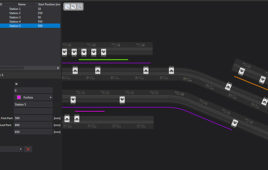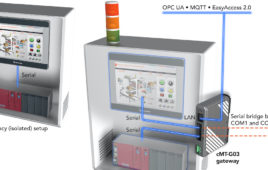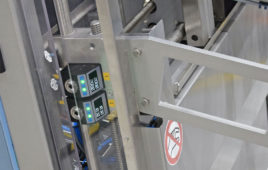A new bill has been proposed to Wisconsin state legislators that could enable self-driving vehicles (about the size of a cooler) to start delivering food and other goods to consumers. The bill would impose distinct regulations on these delivery bots, known as personal delivery devices (PDDs).
In addition to only being allowed sidewalk and crosswalk travel, the PDDs are required to be controlled remotely or physically monitored while deployed, and communities can determine whether or not to allow these devices. The regulations would prevent PDDs from weighing over 80 pounds and travel no faster than 10 miles per hour.
Developed by Starship Technologies, the same company deployed a fleet of driverless delivery vehicles in the community of Redwood City, California. Driverless delivery bots have since been used in Washington DC, Arkansas, Virginia, and California. In addition to Wisconsin’s current deliberations on public PDD usage, state lawmakers in Idaho are also mulling over a similar law.
The PDDs are six-wheeled and use a series of cameras to map out the surrounding area. This allows these driverless vehicles to detect and monitor objects or people that could obstruct their paths. The driverless bots are designed to carry lightweight loads like food deliveries or small packages en route to their recipients.
Supporters of the bill argue that the continuous expansion of e-commerce is signifying a surging reliance on delivery trucks to get small orders to their destinations, which is a haul these driverless delivery bots could help ease the burden of for delivery companies. Advocates for the bill have also noted how the proposal could mitigate delivery costs for consumers by having these bots come right to them (regardless of the content being food or a preordered package).
The Wisconsin State Committee has yet to vote on the bill, although all signs seem to indicate a decision could be made sooner rather than later.
Filed Under: M2M (machine to machine)




